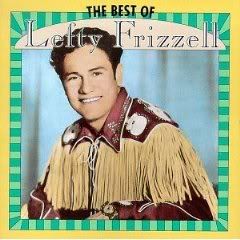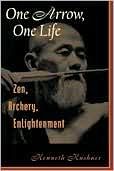[Notice: This also appears as a Facebook Note, and my preference is that general comments be made there. I would like to reserve this "dripping brain" post for what I call Contact High -- where comments are more about encounter, impact, what any of these poems do for you or how they might fail to move you, and maybe to register your thoughts about execution -- what strikes you as commendable and effective or deficient and puzzling. I would like others to go with me into these poems...kick the tires, honk the horns, take em for a spin.]The last few years, my mind has been fractious. I don't know when this began or what event might have set it off. I used to sit through a 90-minute Bruckner symphony with no sweat. I used to get lost in poetry, no sweat. Now, I'm fidgety. Maybe it's just my way of tumbling into older age. I must sense the Reaper's mossy breath on the back of my neck, with dread and restlessness kicking in.
So lately – the last few years – letting myself fall into a poem is no longer a natural act. In fact, poetry is sometimes irritating to me. All this confession. All this energy of craft. All this probing of reality and personality. I prefer just drinking a bunch of beer, as I try to calm myself down...shift into a chronic low gear.
I didn't come to or “get” poetry until I was around 28. My friend Robert Andrews seduced me with Ezra Pound. Then it all clicked. Some of Shakespeare's sonnets went deep into my crazy head. Then the Romantics – Blake, Wordsworth, Keats (especially Keats). On to Emily Dickinson and Dylan Thomas. Many others.
But Pound! Oh, my goodness gracious. Who gives a shit what his single poems and
Cantos are about? Not me. I simply could not get enough of being swallowed up by those lines of absolute pitch-perfection. The rhythm never to be equaled. The images so remarkable as to leave my consciousness stunned and strangely palpitating.
But it had become an effort to even pull a book of poetry from the shelf these last couple years.
Then, I came to Facebook and fell into and among a circle of writer friends. Against inertia, I find myself compelled to read the poems these folks write. Not as an obligation. Rather, the stuff is just so damn good, it won't allow me to be my lazy, mind-wallowing self. None of them are alike. Reading them, it's like entering different worlds. Actually, it's more like stepping into distinct art forms. Though they share the medium's formal structure of having line-breaks, these bodies of work are more like constellations in the ether of untouching universes.
Among those poets are William B. Burkholder and Connie Stadler. Two of Williams's and three of Connie's are reproduced below.
Everyone has their own way of appreciating a poem. After each one, I'll comment on what I get from it.
William B. BurkholderCicadaCicada’s chorus,
High among sycamore’s green tendrils,
Crescendos of summer,
Cacophony of 7 year sleep,
Memory seeps in and out.
Lapping waves of recollection.
Exo-skeletal molted shells,
The remnants of prior lives,
Cacophony of song,
Celebrating new things,
Higher possibility
Among branches of summer’s throng.
Peeling back the browns and yellows
Of Old man’s changing wig,
To look within
And glean the mystery
Of summer messages remembered by me.
A melancholy yet hopeful spirit animates this poem. I like how “Higher possibility,” keyed to the aural setting, bumps the poem into a new octave. An almost mystical, pantheistic quality arrives and sets up the shift into denouement. And it seems to me that the conclusion turns the entire piece into an extended, Westernized haiku.Shadow DancerLamp lit luster, shadow figure moves,
Behind the curtains to fusionists’ grooves.
Blue bonnets singing sonnets
Of yesterdays arousals,
A carousel of secret cares.
Full circle, round and round,
Calliope’s muted tones.
Passions rise among the mess,
Of flesh, and blood, and bones.
Dim light pale,
Yellow moon serenade,
Shadow dancer moving,
Soothing,
This is how she plies her trade.
And the dollar men,
Blue collar men,
Gather under sill,
To witness
And gather fantasies
To experience the thrill,
Of the Woman
Decorating windows
To the rhythm and the time…
You see,
She works nights,
At the Local Five and Dime.
Well...I didn't expect that ending. Not sure what I was expecting. This poem is a Calliope, a musical dance through words. For an instant, I became this woman, swirling to what I perceived to be an inner rhythm of life-felt, half-sighed romance, a mood in which the frowning thoughts of philosophers have no purchase:
A carousel of secret cares.
Full circle, round and round[William B. Burkholder is the content editor for Troubadour21.com, and they constantly accept submissions from poets, writers and artists. He holds the copyrights for the above two poems.]* * * * * * * * * * * * *
Connie StadlerUncle EdgarEver
Baltimore’s
Own
Gutter
Splayed
Marinade
Torrential excreta
&
Booze-sopped
Rot.
‘Arrogant, reprobate
Godforsaken
Beggarly’
Execration
Of
‘Hideous
Mortification’
How could I know?
In my Catholic Pleated
Adulation
That the Throbbing
Derangement
Of
Amaranthine Palpation
That the Ebon
Plumaged
Accusation
Quaffing
Sanity/Soul
Brew
That Detested
Fortunato
Ever
Questing
Amontillado
That all
That
All
Were You.
In the Sepulchre
Miasma
Of
The Resounding
Sounding
Seas
Where Mediocrity
& Genius
Bob and Weave
Bob and Weave
We Dissever
Evermore
Beyond the
Compass
Cleaved.
But at
Eventide
I lay down my pride
Gobbling
Kaleidoscopic
Ampoules
Savoring
Swallow
&
Glide.
Staving Unhallowed
Dominion
As
Mephistophelean
Bride.
Seizing
Hound of Usher
By the Throat
To
Engrave
&
Inscribe.
Yes,
Your
Ever-lasting
Torment
Is Kindred
Close
Betide.
And the Angels Sob
As Vermin Fangs
In Human Gore,
Imbued.Eternal Travelers
Of Valley Shadow
Where Demons Pillage
& Denude
Where Horror rakes the Dawn
And Soundless Screams are Born
Where Joy is ‘ere Foresworn
And Adamantine Breath, Be
Mourned.
Two Ravaged Lives
Bestrewn.
Prophetic sounds…arise forever
From Us, and from
all Ruin …
Copyright 2009 by Connie StadlerThe first time I read this, I went a little overboard, leaving in my comment this phrase: “morbid holiness.” I think I was simply carried away with the thought that I had found another who was keying into something peculiar to me: a sense of deep entropy behind life's energetic flailing. The kind of quality I discern in De Quincey and W.G Sebald. Who knows if those writers, including Poe, were implying what I thought they did about reality? I'm peculiar and sense what I sense.
On second reading, I began to doubt my interpretation.
Today, this thing scares the shit out of me.
You decide how it affects you.Bed & BreakfastVictorian bouquets:
Petals of oiseaux, jaquemar,
Eau de nil
Dapple antique eiderdown
In assaultive
mackling
On cockcrow myopia.
Grecian valence frames
Perfectly positioned scenic wonder
awash in London Grey gust
of modernity’s befoulment.
…nary a footnote
in brochured fineprint...
Of Indian Summer
Saturday Getaway.
Varnished and burnished
Undulations of walnut balustrade
Await grandeur frenzied
morning hoard
Inhalations.
Innkeeper’s lacquer and clatter.
Fresh bun salver/lilac doilies
Lalique saucered cups
Brim and steam
Rendering hasty departures
From sunrise
Jacuzzi delectations.
Post matinal satiation
Hedgerow impeccability
invites
Vaporous meanderings
Of routinized reflection.
In the distance…
Beyond the boundaries
Of propriety
An ancient evergreen
Impales manicured
Perfection
Shattering scansion
Of manicured lawn
And architectural immaculata.
Losing myself…
I digress
Trailing
soft earth path
‘Neath the belly
Of ancient
forgotten
Pine.
In approach
The delusion of assembled
Natural happenstance
Shapeshifts into upright slabs
Of fragmented bleached alabaster
Cambered and cruciform stelae
Cracked Cornish crosses
Adrift in weedy integument.
…in memento mori…
Aged bas-relief proclamations
Crying out for notice:
I lived
I wasDuly noted, save
this moment
this day
By industrious puff-tufted
Woodpecker
And ever shadowy
Aeolian kiss.
In a wilderness
Of catacombed questions
effusing from
Tintype/colllodian
phantasmic Swirling
Synaptic trails
To
Imagistic impress…
…Parlor portraiture of customary
Impassiveness.
Seated mother in
Organdy peplum finery
The
Tonsorially flawless chignon
Cradling preoccupied
Baptismal babe
A
Sailor suited shaver
Stolidly at the bulwark
Of kith and kin flank
Dundreary whiskered
Pater Familias…
The thirst of ripened life long quenched.
No more the verdant sommersault of innocent abandon.
No more begging for the baffled coin, the clink of pride.
No more copulations of old, deluded seeking.
No more straying through funereal gravel of the labyrinth.
Just complete silence.
Empurpled drippings of unfulfilled resurrection?
I am deeply moved.
Turbidly
Arising from
Ruminant crouch
Dandelions graze
Solitary wayfarer
Of insanable expanse
Ever receding
By the quickening footfall
Into
Immemorial mist…
Ever more
Striding the shallows
Of mortal coil thought.
Vitalizing
Eternal erasure
Of even faintest lamentation.
In the distance…
Polychrome Queen Anne gables
Pierce
Sudden sunless sky.
As
Whispers of fresh brown bread
And pumpkin soup
Impel needful cantered pace.
The loping affirmation
Of human
Typicality.
Copyright 2008 by Connie StadlerIt is good that we can puncture time and space, normality and circumstance. It is necessary that the souls of things occasionally invade us...fumes of hot fairy dances scald us in the accidental flower-circle. Such refreshes the mind, spurs new tangents into the neural maze.
“In the distance...” That is where we long to be. Like pent-up demons, coiled and knotted into everydayness, we desire exorcism...to go hollering with abandon into more supple space and more equivocal time. Into natural anarchy.
This poet loves words, and she presents us with a master chef's banquet. Where do these words come from? What peculiar quality of sentience controls their flow? Both of those questions have no answer, of course. We are in the presence of art's mystery.Welsh-Flecked
‘Romance’In the laughing house
strewn in the plum dappled
peach tricking meadow,
A thicket of blackberried
hummingbirds steal my form.
That I may gaze through the
fawn breast light
at the glimmers of hyacinth hair
and the ripple of your farm hued
body sawing and bailing, in
briny brilliantine hallow.
Till ash evening
falls and I return to the
dragonfly blight in
the onyx ribboned hills
that fill me with the
quarry of your absence
tracing unkissed lips, pale
in the time skewered dusk.
Copyright 2008 by Connie StadlerI can only relish and marvel. What is your reaction? What are your thoughts?










